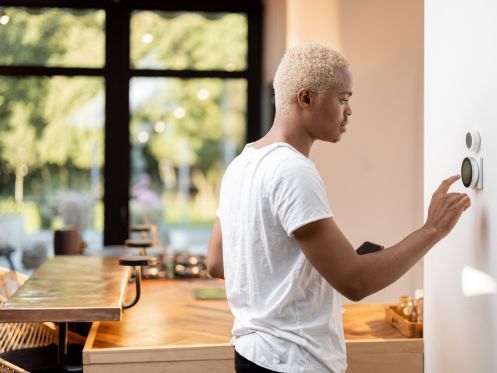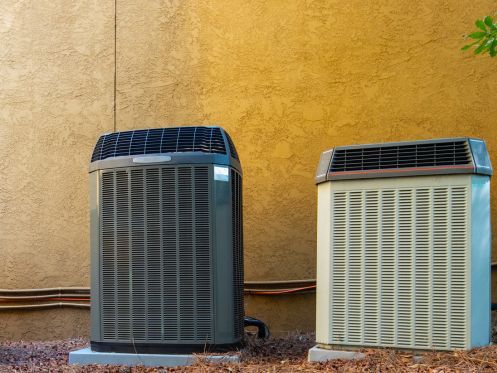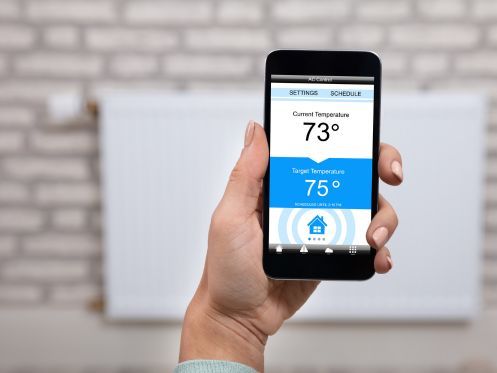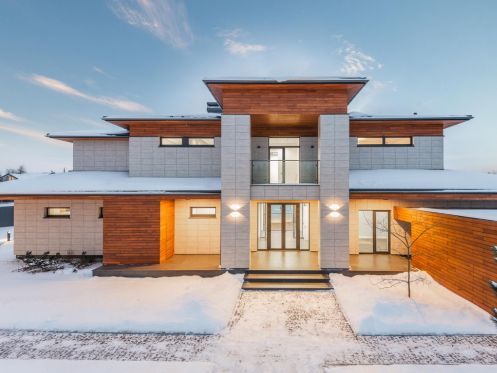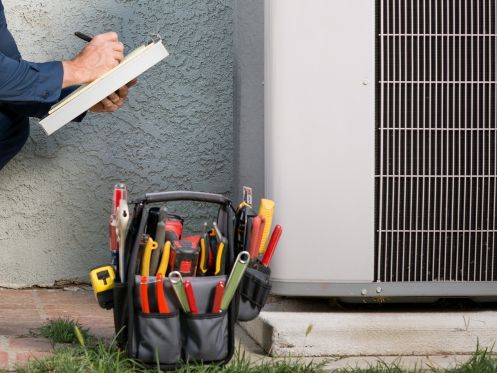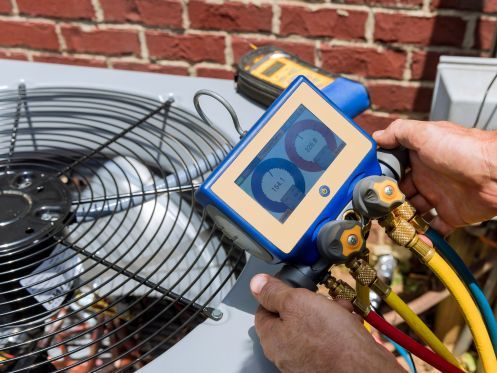11 Steps to Finding Your Optimal Sleep Temperature
Table of Contents
How do you find your optimal sleep temperature? That is a question many people ask themselves regularly, but the answer is not always easy to come by. There are many factors that can affect how comfortable you are when sleeping, including air conditioning or heating in the room, humidity levels and even what type of mattress you’re using.
HOW TEMPERATURE AFFECTS YOUR SLEEP CYCLE
Temperature affects your cycles of sleeping and waking by altering the time you spend in each stage of sleep. Generally speaking, warmer temperatures promote lighter sleep, and there are more arousals from a shallower sleep state. On the other hand, cooler temperatures result in deeper slumber with an increased amount of time spent in slow-wave sleep (SWS). SWS is the deepest phase of sleep prior to rapid eye movement (REM), and it is considered to be the most restorative. This means that warm nights can produce lots of micro awakenings and fail to yield sufficient rest.
In this blog post, we will go over 11 tips for getting the right sleep temperature every night.
STEP 1: DETERMINE IF YOU ARE A HOT OR COLD SLEEPER
If you fall asleep in a few seconds and rarely feel the need to pull the covers up, chances are you are a warm sleeper. Keep your bedroom at around 70 degrees Fahrenheit to ensure your optimal sleep temperature. However, if you wake up often during the night and have to pile on multiple blankets before finally dozing off, you may be a cold sleeper who should lower the temperature in your bedroom just a bit when it is time for bed.
STEP 2: DRESS COMFORTABLY FOR BED EACH NIGHT
One of the most important aspects of finding your perfect sleep temperature is how many layers of clothing you put on yourself at night. You should be wearing enough to avoid getting chilled but not so much that you overheat.
STEP 3: ADJUST THE THERMOSTAT IN YOUR HOUSE
If you have central air conditioning or heating, adjusting the temperature of your household during wintertime may help you fall asleep faster at night. Lowering this setting by a few degrees can be a comfortable way to sleep cooler while allowing for everyone else in your home to stay warm. This is also true if you’re feeling too warm while sleeping. Raising the temperature slightly will allow for better airflow within your bedroom. However, keep in mind that altering the thermostat settings too much will increase your energy bill over time.
STEP 4: DRESS ACCORDING TO THE WEATHER OUTSIDE
Although dressing comfortably for bed is important, you should not wear too many clothes to sleep if it’s warm outside. In nice weather, leave a window open during the night so that there is always some sort of airflow within your bedroom.
STEP 5: CONSIDER INSTALLING A FAN
If you live in an especially hot or cold location, having this type of equipment installed in your home may be very helpful in finding the right temperature for nighttime relaxation. While fans are usually used in warmer areas because they can be helpful when trying to cool down a bedroom on a warm summer night, using one in a colder climate can help reduce your heating expenses.
STEP 6: EXPERIMENT WITH DIFFERENT TEMPERATURES BEFORE BED
Before spending money on installing new equipment in your house, it helps to experiment with slightly warming up or cooling down the temperature in your bedroom. If you’re using an electric blanket to stay warm at night, try keeping it unplugged and using extra standard blankets instead. For people who live in a very hot part of the world, sleeping without any blankets can be incredibly refreshing.
STEP 7: FIND SLEEP AIDS THAT HELP REGULATE YOUR BODY TEMPERATURE
A lot of people notice that they tend to get too hot or too cold when trying to fall asleep every night, but did you know that there are plenty of products out there created just for this issue? Many types of mattress pads include special features designed specifically for regulating body temperature while sleeping. You can buy specific types of bedsheets made from materials that resist temperature change. There are also pillows filled with cooling gel.
STEP 8: CONSIDER SLEEPING NAKED FOR A MORE COMFORTABLE TEMPERATURE
Although it might seem strange, sleeping completely nude — or at least wearing very little clothing — is a great way to find the right sleep temperature at night. Of course, the reverse can also be true. If you are concerned about warmth during colder months, put on an extra pair of socks.
STEP 9: CHOOSE THE RIGHT MATTRESS PAD FOR YOUR PREFERENCES
There are lots of different types of pads and mattress toppers available these days. Finding the right one for your needs can help make falling asleep easier by keeping your body at the right temperature throughout the night. Some create a barrier between you and the mattress to keep you off of cold air while others have materials that allow you to sleep comfortably at either extreme of temperature. You can also buy different “zones” within one pad if you want certain areas of your body (such as your legs or torso) feeling warmer than your head.
STEP 10: EVALUATE HOW MUCH MONEY IT COSTS TO OPERATE HEATING AND COOLING DEVICES IN YOUR HOME
A lot of people assume that they need their house to be uncomfortably hot (or cold) when they’re trying to fall asleep at night, but this isn’t actually true. Before turning up the heat during winter or blasting the AC in the summer, take some time to calculate how much these devices cost when running for extended periods throughout the day.
STEP 11: INVEST IN A GOOD MATTRESS THAT REGULATES TEMPERATURE
Many modern mattresses are specially designed to have features that help you maintain the right body temperature when sleeping. With one of these, there’s no need for an extra mattress topper or heated blanket. If your current bed isn’t very comfortable, this is often a great choice for improving your sleep quality.
Remember, everyone has different preferences regarding how hot or cold they like their bedroom during slumber. Whether you’re trying to cool down on a warm night or stay nice and cozy during wintertime, there are plenty of simple ways to achieve your ideal temperature without needing any extra products or equipment. Although sometimes a warmer temperature is better for falling asleep and other times a cooler temperature will help you drift off to dreamland faster, remember that you get the final say over your preferred level of warmth.
Air Docs Heating & Cooling provides the best customer service in and around Vero Beach for heating, cooling and indoor air quality needs. Contact our experts at Air Docs Heating & Cooling to get started on a new heating or air conditioning installation or replacement. We also perform a full range of maintenance and repairs. Our team of experts is ready and waiting to assist you in finding the best sleeping temperature to optimize your comfort so you get a good night’s rest. For more information, call us today.

